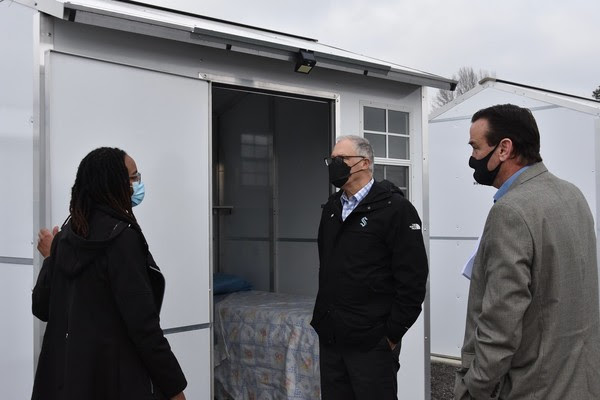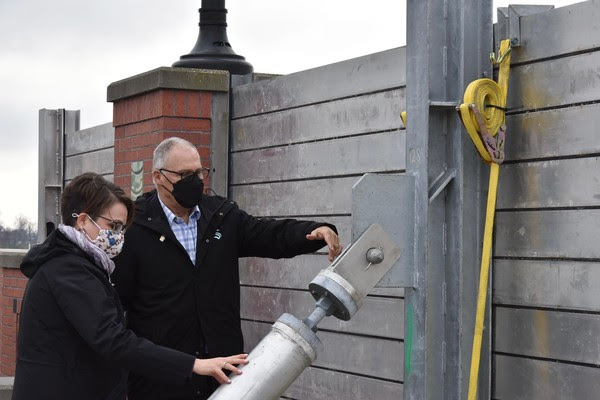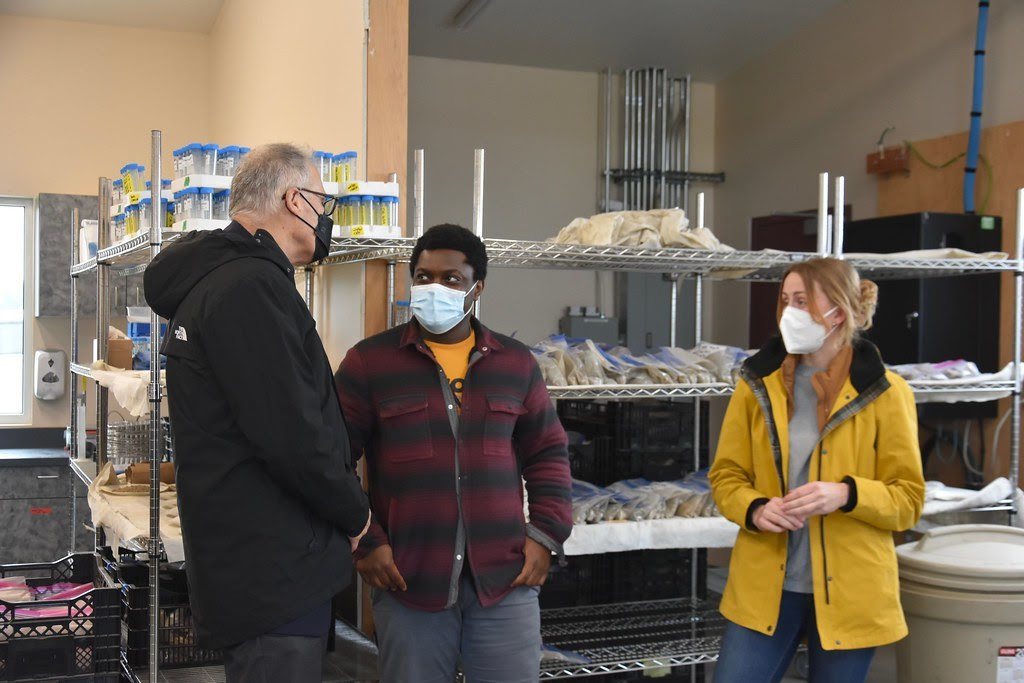||| FROM THE OFFICE OF GOVERNOR JAY INSLEE |||
The Legislature adjourned “sine die” Thursday night, ending a short session that realized many of the governor’s budget goals, headlined by a once-in-a-generation transportation revenue package that will reduce emissions and our dependence on fossil fuels. The Legislature also closed on important investments in housing and homelessness, education, and salmon recovery along with key policies to improve health care.
“Sixty days ago, I asked for big action and 60 days later legislators delivered,” said Gov. Jay Inslee after legislators adjourned late Thursday. “While some work remains for next session, legislators acted on some of the most urgent issues facing Washingtonians.”
In addition to the budget and transportation package, legislators approved over 300 bills this session. The actions include:
- New funding to help communities build thousands of additional affordable housing units and rapid housing options.
- A transportation package that embraces a transformative new approach to building a cleaner, greener transportation system.
- New policies to help create good-paying clean energy jobs in Washington state.
- Continued health care and behavioral health investments that help meet growing demand for services.
- The nation’s first alert system for missing and murdered Indigenous people.
- The Affirm Washington Abortion Access Act, which strengthens access to abortion care providers.
- Important fixes to the state’s long-term care insurance program.
Read the rest of the story on the governor’s Medium page.
Statewide mask policy will lift after Friday
After 11:59 PM today, Washington’s statewide mask policy will lift for most public locations, including schools. This announcement followed the Centers for Disease Control’s new masking guidance announced in February.
“We are turning a page in our fight against the COVID-19 virus. This page is based on empowering individuals and families about protecting themselves rather than based on government restrictions. We can do this because the activity of the virus is significantly declining,” said Inslee at his Feb. 28 media availability.
Masks will still be required in certain settings like health care and correctional facilities. The governor encouraged Washingtonians to be kind and compassionate as many will continue choosing to wear a mask and businesses can also continue to require masks.
Read last week’s full news release.
Skagit County leaders share progress on flood protection, housing, and sustainable agriculture

On Monday, Gov. Jay Inslee joined Burlington Mayor Steve Sexton and Mount Vernon Mayor Jill Boudreau for a visit to the Skagit First Step Center. This 24/7 emergency temporary homeless center provides rapid services, food and housing for people experiencing homelessness. They were able to get this center up and running in just a few months to safely transition people living on sidewalks and rights-of-way.

The governor also visited the Mount Vernon floodwall project. This innovative floodwall was built to protect the city from flood damage and is helping local businesses save thousands of dollars in reduced insurance rates. In November, the floodwall proved its success and allowed these businesses to breathe easier knowing they were protected.

Inslee ended the day at Washington State University’s Northwest Washington Research and Extension Center in Mount Vernon. Students and faculty are engaging in research to shape the future of sustainable agriculture. One student told the governor “there is a whole world beneath our feet.” These aspiring scientists are doing important work to keep that world healthy and productive.
State’s digital navigator network can help low-income households access broadband benefits and digital training
The Federal Communications Commission’s emergency broadband benefit program is now open to help low-income households purchase internet service and devices during the pandemic. The Washington State Broadband Office’s digital navigators can help people in all 39 counties apply for the program.
Households can qualify several ways, including if their income is at or below 200% federal poverty level ($55,500 for a family of four) or if they are already enrolled in a federal benefits program such as Medicaid or Social Security Insurance.
Qualifying households can get a discount up to $30 a month for internet service and a one-time discount of $100 to pay for a laptop, desktop computer or tablet.
Digital navigators can also help people sign up for culturally – and linguistically – appropriate trainings to gain digital skills and literacy or access other broadband services. The program is one of many ways the state is promoting equitable access to internet service in underserved rural or low-income communities and in marginalized communities.
Contact a digital navigator program in your area for more information.
Washington National Guard assisting state veterans homes
The state’s veterans homes have been struggling with staffing, particularly during the COVID-19 pandemic. National Guard members are spending two weeks helping residents and staff at the Washington Veterans Home in Port Orchard, Washington Soldiers Home in Orting, and Spokane Veterans Home.
Guard members have been onsite helping to alleviate stress of veterans homes staff by answering resident call lights, cleaning meal trays, answering non-clinical requests, performing deep cleaning, performing COVID screenings, picking up manual tasks, and conducting grounds work, among many other duties.
The governor’s office appreciates these members for answering the call to serve those who served our nation.
Read the state Department of Veterans Affairs full new release.
New economic development program focuses on high-growth industry clusters with job opportunities across the state
The state Department of Commerce earlier this year launched a new Innovation Cluster Accelerator program that can help communities attract or grow high-growth industries. On Monday, the state Department of Commerce announced four additional industry-led consortia that were awarded Innovation Cluster Accelerator grants. These new grantees join the five selected earlier this year that focused on 5G and edge computing, quantum computing, hydrogen, clean buildings and advanced nuclear power technology.
The four additional consortia are:
- Evergreen Bioscience, led by Greater Spokane, Inc. – working to make the Intermountain Northwest and Washington State a magnet for companies providing and consuming expert life and health science contract research, development, and manufacturing services of medicines and medical devices by enhancing workforce development and services to pharmaceutical and medical devices companies.
- Pacific Northwest Aerospace Cluster, led by Pacific Northwest Aerospace Alliance – advancing Pacific Northwest aerospace manufacturing competitiveness through technology innovation, sustainable manufacturing, supply chain mapping, workforce development and marketing.
- Sustainable Aerospace Technologies and Energies (SATE) Cluster, led by Aerospace Futures Alliance (AFA) – advancing aviation’s global fight against climate change by leading the research, development and deployment of sustainable aviation fuels, electrified aircraft and hydrogen-powered aviation.
- Washington Autonomous Vehicle Cluster (WAV-C), led by the Kitsap Economic Development Alliance – accelerating the advancement of unpiloted and autonomous vehicles, with an initial focus on the growing need for waterborne craft
Each will receive $500,000, along with strategic guidance and support to build and run an innovation cluster in a targeted industry.
Read the Department of Commerce’s full news release.
**If you are reading theOrcasonian for free, thank your fellow islanders. If you would like to support theOrcasonian CLICK HERE to set your modestly-priced, voluntary subscription. Otherwise, no worries; we’re happy to share with you.**







